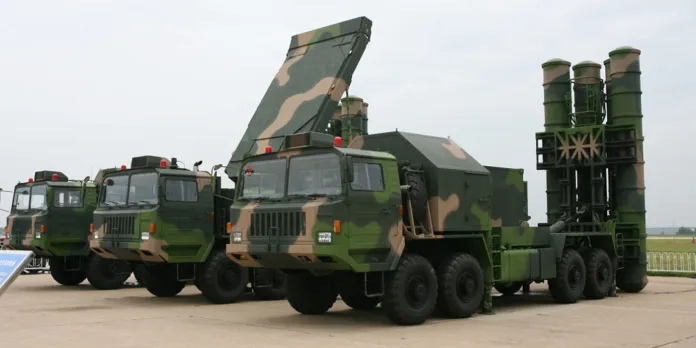Tensions between India and Pakistan have escalated sharply following reports that Pakistan’s HQ-9 air defense missile systems suffered significant damage in the aftermath of India’s recent military action. The HQ-9P variant, supplied by China and central to Pakistan’s air defense strategy, was reportedly compromised during the developments surrounding India’s Operation Sindoor.
Launched on May 7, 2025, Operation Sindoor involved precision missile strikes targeting terror camps in Pakistan and Pakistan-occupied Kashmir (PoK). The operation was carried out in response to the April 22 terror attack in Pahalgam, Jammu & Kashmir, which claimed the lives of 26 people. Indian authorities described the strikes as “focused, measured, and non-escalatory,” clarifying that they deliberately avoided Pakistani military installations.
The Pakistan Army, however, claimed that 31 people were killed and 46 injured in the Indian strikes. The collateral impact reportedly included the damaging of HQ-9 systems, known for their capabilities against aircraft within a 125 km range and cruise missiles up to 25 km. These systems, technologically akin to Russia’s S-300, represent a critical component of Pakistan’s aerial defense network.
The aftermath of the operation has seen intensified cross-border skirmishes. Indian forces have reported unprovoked firing from Pakistani positions in Kupwara, Baramulla, Uri, and Akhnoor sectors, prompting retaliatory measures. Simultaneously, civilian life and infrastructure have been significantly affected. India has closed 25 air routes and canceled over 300 flights—140 of them in and out of Delhi. Pakistan has responded by completely shutting down its airspace.
The rising instability has also led to domestic and international responses. Kashmir University has postponed all examinations until May 10, and Singapore has issued travel advisories for both India and Pakistan, signaling international concern over the deteriorating security climate in South Asia.
The reported damage to the HQ-9 systems not only exposes vulnerabilities in Pakistan’s air defenses but also adds a new dimension to the unfolding military and diplomatic tensions between the nuclear-armed neighbors.













